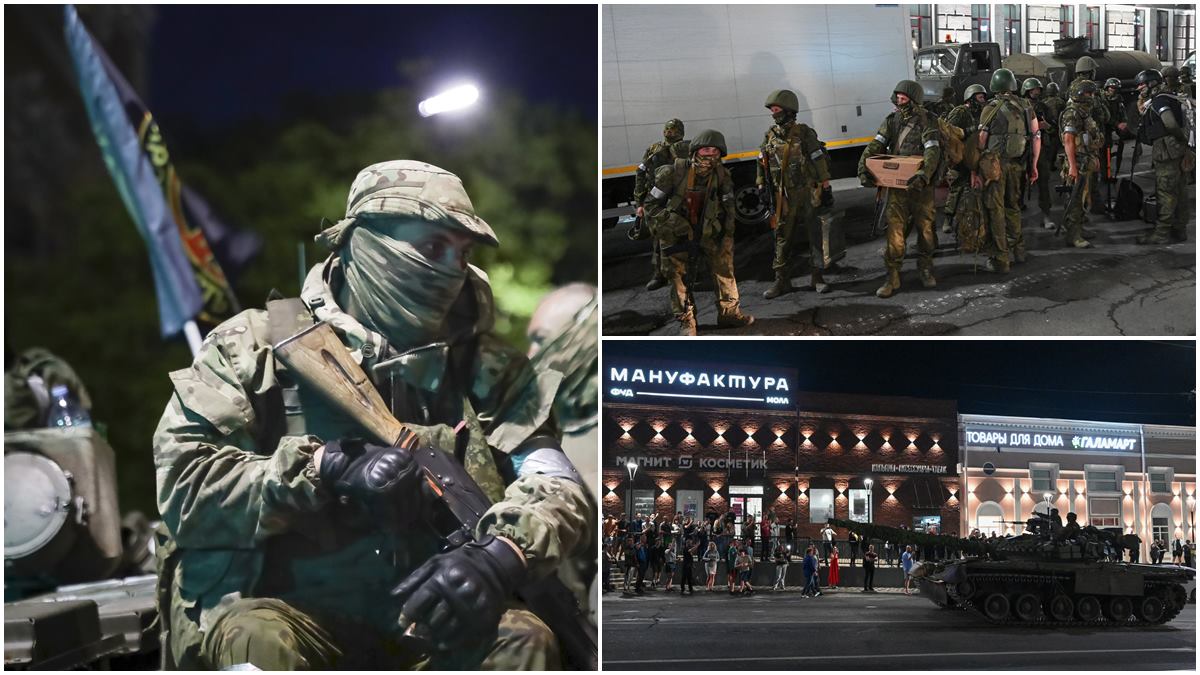 1/7
1/7
Heavily armed Russian mercenaries pulled out of the southern Russian city of Rostov overnight after halting their advance on Moscow under a deal that defused an unprecedented challenge to the authority of President Vladimir Putin. (Reuters Photo)
 2/7
2/7
Under the deal, mediated by Belarusian President Alexander Lukashenko, fighters of the Wagner group would return to base in return for guarantees for their safety and their leader, Yevgeny Prigozhin, would move to Belarus. (Reuters Photo)
 3/7
3/7
Fighters of Wagner private mercenary group pull out of the headquarters of the Southern Military District to return to base, in the city of Rostov-on-Don, Russia. (Reuters Photo)
 4/7
4/7
Prigozhin, a former Putin ally, whose forces fought the bloodiest battles of the 16-month war in Ukraine, said his decision to advance on Moscow was intended to remove corrupt and incompetent Russian commanders he blames for botching the war. (AP Photo)
 5/7
5/7
Putin had vowed earlier to punish those behind the armed uprising led by his onetime protege. In a televised speech to the nation, he called the rebellion a “betrayal” and “treason.” In allowing Prigozhin and his forces to go free, Peskov said, Putin’s “highest goal” was “to avoid bloodshed and internal confrontation with unpredictable results.” (AP Photo)
 6/7
6/7
Early Saturday, Prigozhin’s private army appeared to control the military headquarters in Rostov-on-Don, a city 660 miles (over 1,000 kilometres) south of Moscow, which runs Russian operations in Ukraine, Britain’s Ministry of Defence said. (AP Photo)
 7/7
7/7
Members of the Wagner Group military company guard an area as other load their tank onto a truck on a street in Rostov-on-Don, Russia. (AP Photo)

